Hi and welcome back to work in process! I’ve been on summer break for the past few weeks, wrapping up our annual trip to our family cottage in Ontario just in time to re-acclimate to altitude and ride the Leadville Trail 100 Mountain Bike Race last Saturday. (Amazing! More on that soon.)
One of my favorite parts of this summer was teaching a writing workshop on Stony Lake. This was my third summer doing so, and we met every Monday from four til five pm in the 130-year-old wooden pavilion on Juniper Island. Steve and I were married in the Pavilion; my mother has been square dancing there every Wednesday night for 74 summers, most recently with her brood of grandchildren.
We were a small but mighty group: Dorothy, an 85-year-old former school teacher with the mind and instincts of a lifelong writer; my friend, Jenny, an empath and healer who could delve into a hundred years of family history from a single word. My 17-year-old niece and her friend wrote about their precious, fleeting summers. We took turns reading aloud. Our words sounded different when we let them loose into the soft lake air—more spacious and promising, full of secrets and hints we could store away for leaner writing times.
To teach is to learn, and the first week, Dorothy told us that she’d taught writing to learning-challenged students in the 70s and 80s in Toronto, using a free-writing method she called Swish. You could write on any topic you wanted to for ten minutes. Even the kids who came to class stuck and reluctant, Dorothy said, were swishing before long. Dorothy and I were doing the same writing practice, only by different names: You let your mind wander and willingly follow it where it leads.
SWISH is an acronym, Dorothy explained at our second class, though she couldn’t recall what the other letters stood for. It didn’t matter—the verb itself was so delightful and evocative it didn’t need an explanation. Who doesn’t want to swish through the world, full of self-assurance and curiosity, released from doubt? Sign me up!
One week I had to leave the lake for a couple days to chaperone my daughter and her race team at a sailing regatta on Lake Ontario. I’d finally started writing the cottage novel I’ve been sketching in my head for the past few summers, and I worried that I’d lose momentum and inspiration while I was away.
Our second night in Toronto, though, we took the team go-karting. It was my first time, and I couldn’t believe such a world existed: the growly little karts that had to be pull-started like motor boats; the maniacal grins of the other drivers whizzing by in a blur; the attendants who sprinted like pit crew when there were collisions. By the end of five laps, I had the worst headache I’d ever had from the diesel fumes, a teenage kid rear-ended my kart at high speed, and I was so dizzy I thought I might throw up, but I forced myself to finish all ten laps we’d paid for. It was a perfect mid-summer evening, the sun setting as a full moon rose like a peach over the Toronto skyline, brief flashings all around.
There was so much material!
Back at our hotel, where only a few hours earlier I’d felt soul-deadened and devoid of a single creative thought, I could now see a whole go-kart novel unfolding in my head. I wanted to get it all down: the cityscape at twilight, the twisty, skid-marked track a world unto itself.
Monday morning at the lake, I went out for a long bike ride and let my thoughts drift to that afternoon’s writing class. I rarely map out my teachings in advance, preferring to let them arise naturally from life and mind.
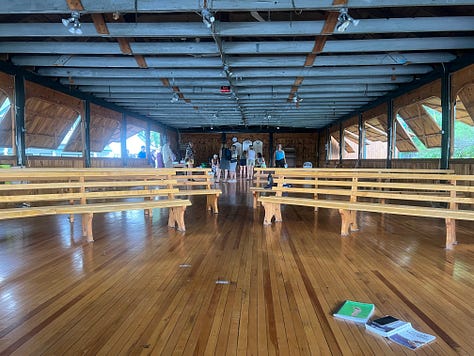
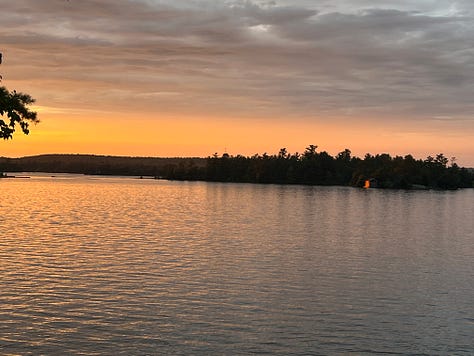
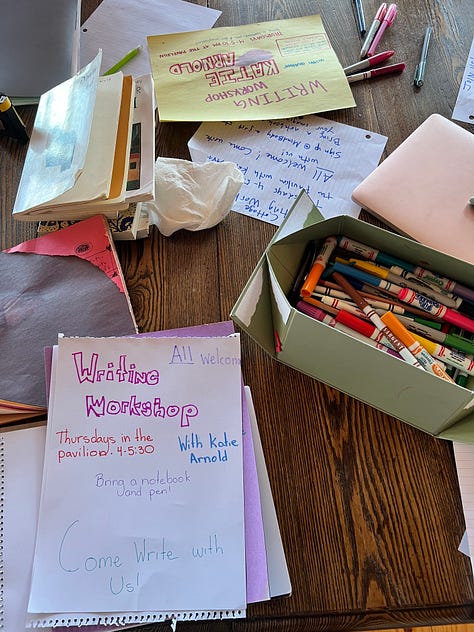
In this part of Ontario, the farm roads are so straight they’re called lines, or concessions. Queen Anne’s Lace and goldenrod grow wild along fields dotted with hay bales. People sit on lawn chairs in their front yards, watching life go by. They always waved, and I waved back. The roads were so boring, the country so ordinary, it perfect for daydreaming.
My mind spun in time with my pedals: I would teach about writing through our blocks, how we can turn obstacles into inspiration.
When I got home, I swam and lay on the dock with one ear pressed to boards, listening. Waves sloshed beneath the wooden crib; the water sounded like it always does: like breath, energy, ideas.
I hadn’t wanted to leave the lake, but I’d gone anyway and found inspiration where I least expected it. Being away didn’t dull my ability to write about the lake, as I’d feared. It sharpened it. I could see more plainly what made Stony unlike any place I’d ever known. I’d learned, not for the first time and definitely not the last, that we can use our resistance as energy.
Only Dorothy and Jenny were at class. It was so warm we sat beside the lake, our notebooks balanced on our knees. We started the way we always did: We swished. Our ideas swirled like water through our minds and into our notebooks. I’d brought my copy of Zen Mind, Beginner’s Mind by the late Japanese Zen teacher Shunryu Suzuki, and I flipped open to a chapter called “Mind Weeds” and read aloud:
“We say, ‘Pulling out the weeds we give nourishment to the plant.’ We pull the weeds and bury them near the plant to give it nourishment. So even though you have some difficulty with your practice, even though you have some waves while you are sitting, those waves themselves will hep you …. You should rather be grateful for the weeds, because eventually they will enrich their practice.”
Weeds and waves are our obstacles. We can allow them to hinder us, or we can sow them as seeds for inspiration. We can transform our resistance into momentum. We can use our blocks to break through.
As I read, waves from a passing boat wake lapped the rocks with a soft swishing sound.
“Did you hear that?” I asked. My friend Dorothy smiled.
Interested in joining one of my upcoming writing workshops? We have two open spots in Mountain Flow Camp, a Writing in the Wild retreat September 5-8 in Colorado’s San Juan Mountains. Together we’ll practice writing and moving intuitively with our minds and the energy of the mountains. Join us for daily trail running, hiking, guided writing, meditation, yoga, a wood-fired meadow hot tub, and delicious meals. Our base is High Camp, peaceful wilderness lodge set in a gorgeous alpine basin at 11,000 feet, with mountain views and brief flashings in all directions. All-inclusive retreat cost is $2600 per person; register today with a friend and you’ll both receive $100 off.
Please don’t hesitate to reach out with questions about High Camp and future opportunities to practice with me. A weekly Zoom writing workshop is in the works for fall, Mondays 4-5 pm. Stay tuned!
swish on,
katie xo


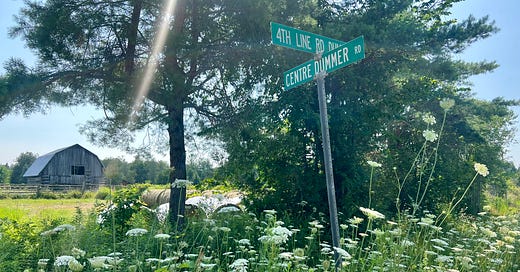


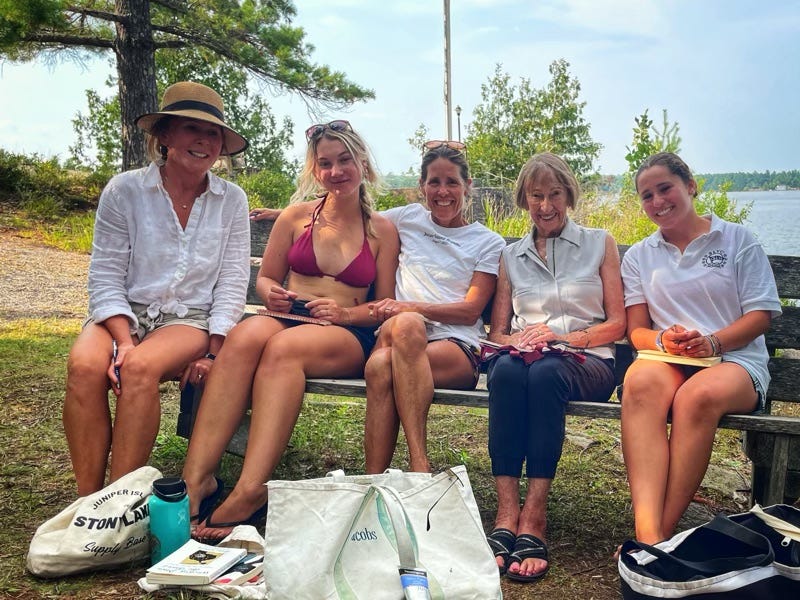

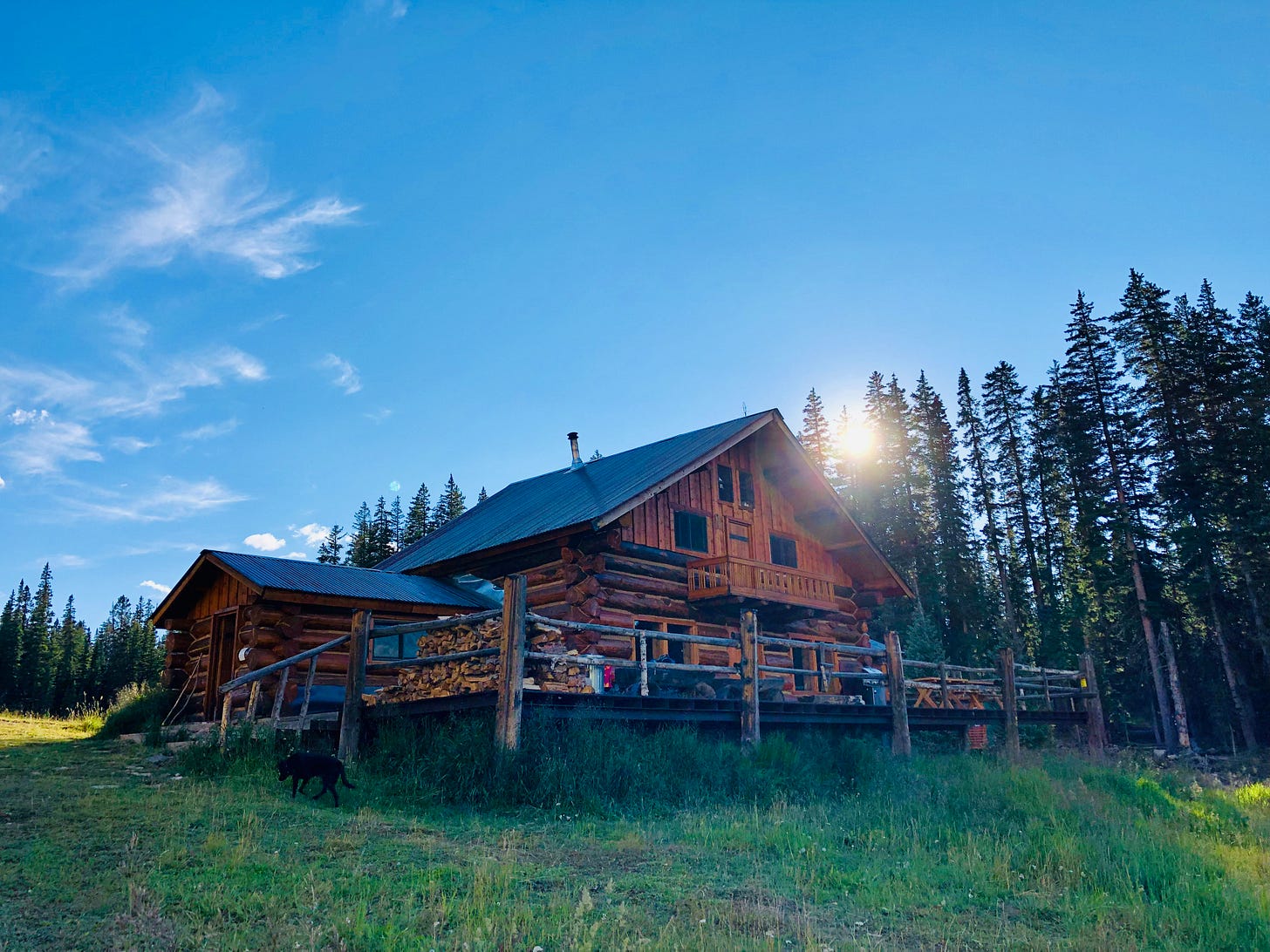
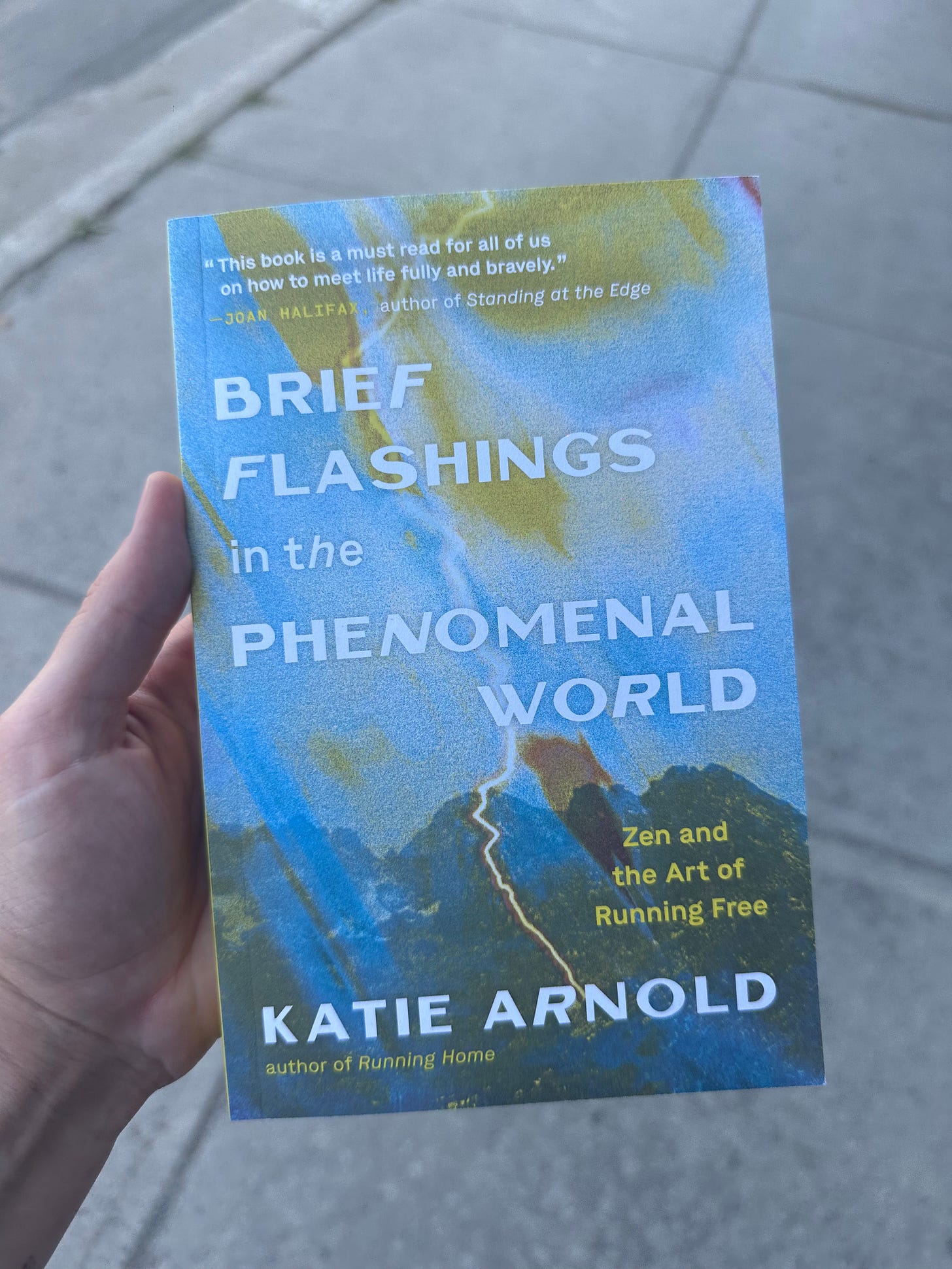
Swish sounds just like one of Natalie Goldberg's rules of writing. The description of your crew there gets me psyched for Mountain Flow Camp next week!